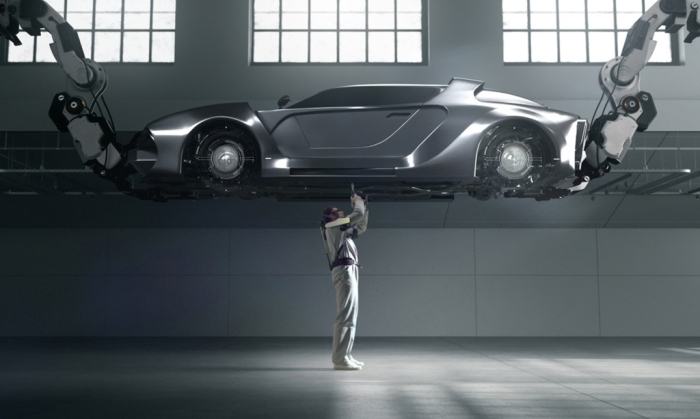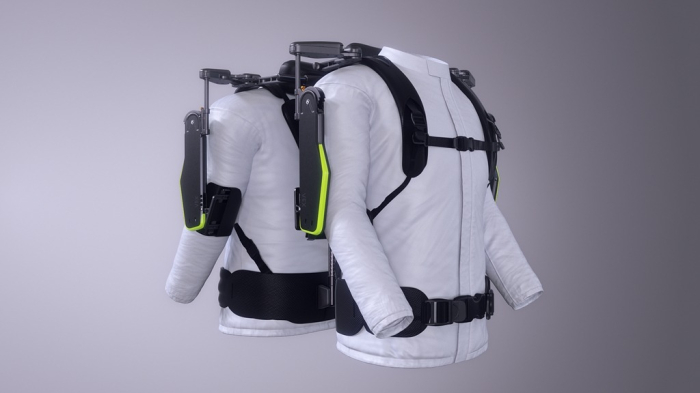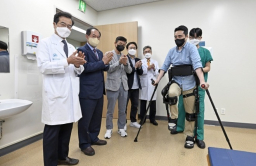-
KOSPI 2577.27 -2.21 -0.09%
-
KOSDAQ 722.52 -7.07 -0.97%
-
KOSPI200 341.49 +0.02 +0.01%
-
USD/KRW 1396 -2.00 0.14%
Hyundai to unveil wearable device for car manufacturing
Robotics
Hyundai to unveil wearable device for car manufacturing
Hyundai to conduct demonstration tests for the robot in H2 to decide whether to use it for car production
By
Jul 17, 2024 (Gmt+09:00)
2
Min read
News+

Hyundai Motor Group, the world’s third-largest automaker, plans to unveil a wearable device for car manufacturing designed to improve productivity and protect workers at its assembly lines by preventing their injuries.
Hyundai Motor Group Robotics Lab is on Thursday set to provide detailed specifications of a vest-type wearable robot weighing only 1.9 kilograms under development that will assist workers with overhead tasks at Hyundai Motor Co.'s Ulsan complex in South Korea.
The robot was designed to assist industrial workers who spend long hours doing overhead work. The wearable vest is equipped with a polycentric axis and other parts similar to human joints to reduce muscle or skeletal fatigue from shoulder to elbow.
The device is expected to offer assistive power of 2.2-5 kilograms and torque of 3.8-8.6 newton-meters based on the Vest Exoskeleton (VEX), its prototype, which the South Korean group with two automakers – Hyundai Motor and Kia Corp. – unveiled in 2019, industry sources said.
That will allow a user to feel the weight of only 5kg when lifting a 10kg tool above the head, according to the sources.
The VEX does not need a battery as it is designed with a chargeless mechanical structure.

DEMONSTRATION TESTS
Hyundai Motor Group plans to conduct demonstration tests with workers at its plants in South Korea in the second half.
Engineers in charge of overhead working on areas such as the chassis, underbody covers and sealers are likely to join in the tests, as well as painters.
The group plans will reflect participants’ feedback on the wearable robot before any launch.
“We plan on-site tests at domestic production lines as a part of wearable robot developments,” said a group official. “We will decide whether to introduce the robot for manufacturing based on the demonstration tests.”
The conglomerate conducted separate demonstration tests on a wearable device at the Hyundai Motor Group Innovation Center Singapore (HMGICS).
The global wearable device industry was expected to quadruple to $10.3 billion by 2029 from an estimated $2.6 billion this year, according to a research firm Mordor Intelligence.
Write to Jin-Won Kim at jin1@hankyung.com
Jongwoo Cheon edited this article.
More To Read
-
Nov 21, 2023 (Gmt+09:00)
-
 Electric vehiclesHyundai breaks ground on $1.5 bn EV plant in S.Korea
Electric vehiclesHyundai breaks ground on $1.5 bn EV plant in S.KoreaNov 13, 2023 (Gmt+09:00)
-
Apr 19, 2023 (Gmt+09:00)
-
 Future mobilityHyundai eyes smart mobility with Boston Dynamics acquisition
Future mobilityHyundai eyes smart mobility with Boston Dynamics acquisitionJun 21, 2021 (Gmt+09:00)




